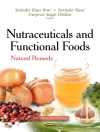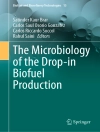Professor Carlos Ricardo Soccol is a research group leader within the Department of Bioprocesses Engineering and Biotechnology (DEBB) at the Federal University of Paraná. Professor Soccol has experience in bioprocessing/biological engineering, industrial biotechnology, biofuel technology, applied microbiology and fermentation technology. His research has resulted in 1418 publications, including 111 patents, 31 books, 175 book chapters, 511 original papers and 590 research communications at conferences/symposia. His research articles have so far been cited more than 40.000 times on Google Scholar (H-index = 95). He has also successfully supervised 91 doctoral students, 135 master“s students, and 24 post-doctoral students. He is Professor HDR at the University of AIX-Marseille-France (2001- ). He was a visiting professor at École Polytechnique Fédérale de Lausanne, Switzerland (2009), University Lille 1-France (2014) and University Blaise Pascal, Clermont Ferrand-France (2015). He has received several national and international awards, including the Science and Technology Award of the Government of Paraná (1996), Best Scientific Achievement of the Year 2001 by Ministry of Sugar of Cuba (MINAZ), The Scopus/Elsevier Award (2009), Dr Honoris Causa, University Blaise Pascal-France (2010), Outstanding Scientist at 5th International Conference on Industrial Bioprocesses, Taipei, Taiwan, Henri Nestlé Award – Nestlé, Brazil (2014), Scientist of the Year – Nanocell Institute (2017), Medal of Scientific Merit by Ministry Science Technology and Innovation – Brazilian Government (2018). Since 2014, Professor Soccol is a member of the Brazilian Academy of Sciences and editor-in-chief of the Journal Biotechnology Research Innovation. He also holds the position of scientist IA of the National Council for Scientific and Technological Development – CNPq, Brazil. He is a technical and scientific consultant for several companies, and agencies and a co-editor and editorial board member of several scientific journals.
Professor Satinder Kaur Brar is the James and Joanne Love Chair in Environmental Engineering and Director of One WATER Institute at York University. Her research is on the intersecting areas of environmental engineering and its impact on the overall well-being of the global community. She primarily works in the two converging fields of value-addition of wastes and removal of emerging contaminants. Many national and international awards and honors have been bestowed on her that prove her research mettle. Notable ones being, in 2021, Best Paper Award, and in 2019, Eddy Principles/Processes Wastewater Medal winner, honored by the Water Environment Federation; in 2017, her research on “Novel and Advanced Hybrid Oxidation and Enzymatic Technologies for Emerging Trace Environmental Contaminants” were awarded the Grand Prize in University Research for Excellence in Environmental Engineering and Science by the American Academy of Environmental Engineers and Scientists (AAEES). She was recently inducted into the European Academy of Sciences in 2021 and has been a member of the College of New Scholars, Scientists and Artists of the Royal Society of Canada, since 2014. She leads the Bioprocessing and Nano Enzyme Formulation Facility (BANEFF) at York University and this unit has successfully led to the training of 72 HQPs (including 45 undergraduates and summer interns). Currently, she is supervising 4 PDFs, 2 research associates, one research assistant, 11 Ph.D.s and 2 M.Scs. She has published more than 400 articles, edited 12 books and at least 55 invited talks to her credit.
Professor Kugen Permaul obtained his undergraduate and postgraduate degrees from the University of Kwa Zulu-Natal. His early research projects focused on bacterial molecular genetics, especially plasmid biology. He graduated with a Ph.D. in 1999 and spent a year as a postdoctoral fellow before leading the Enzyme Technology Research Group at the Durban University of Technology – a focus area of research at DUT. He has steadily progressed up the academic ranks and was awarded a full professorship in 2011. He was appointed Head of the Department of Biotechnology and Food Science from 2014-2017. His research projects involved: the detection and quantification of mycotoxins in food commodities; production of potable water by ultrafiltration; characterisation and production of amylase, inulinase and chitinase enzymes; directed evolution and expression of a xylanase enzyme and genomic sequencing of a thermophilic fungus. Current research projects focus on the expression of carbohydrase genes; and the use of chitin as a bioresource. He was the principal investigator of a BRICS bioethanol project involving researchers from universities from all 5 BRICS nations and is involved in a new BRICS biohydrogen grant until 2025. Current supervision includes 4 Ph D and 8 Masters students with 9 doctoral and 21 Masters completed.
Professor Kannan Pakshirajan specializes in the biological removal and recovery of metals and non-metals from waste. He is a professor of environmental biotechnology at the Indian Institute of Technology (IIT) in Guwahati, Assam, India. Since 2004, he has been conducting research at IIT Guwahati focusing on xenobiotic biodegradation, cleaner production of biosurfactants, biofuels and biopolymers, and biorefinery. He served as a Visiting Researcher at the IHE Delft Institute for Water Education, The Netherlands, during 2011-2012, and at the University of Galway, Ireland, during the year 2019. He has published over 200 papers in peer-reviewed international journals and 20 book chapters and co-edited two books. He has guided twenty Ph D students and many master’s students and trained several postdoctoral researchers thus far. He has completed nine major research projects, sponsored by different funding agencies, as the principal investigator (PI). He is an active life member of renowned professional societies which include the Indian Institute of Chemical Engineers (IICh E), Bioprocessing Society – India (BPI) and Biotechnology Research Consortium of India (BRSI).
Dr. Júlio C. de Carvalho is a chemical engineer and professor of the Graduate Course of Bioprocess Engineering and Biotechnology at the Federal University of Paraná in Curitiba, Brazil. After earning his Ph D in biotechnological processes in 2004, he joined UFPR as faculty, having worked with FD&C bioadditives (especially biopigments and lipids), bioprocess modelling, microalgal biotechnology, bio-based chemicals (especially itaconic acid), and engineering education. He has published 96 papers, 53 book chapters, and registered 25 patents. With an H-index = 34 and 4781 citations (GScholar), Dr. Carvalho has advised students for 6 Doctoral theses and 13 Masters dissertations. He is currently engaged in research that supports scaling-up and integration of bioprocesses, for biohydrogen, microalgal biomass and bioadditives production.
17 Ebooks von Satinder Kaur Brar
Satinder Kaur Brar & Gurpreet Singh Dhillon: Biotransformation of Waste Biomass into High Value Biochemicals
Agro-industrial wastes are end-products emerging after industrial processing operations and also from their treatment and disposal e.g. solid fruit wastes and sludge. The agro-industrial wastes are o …
PDF
Englisch
€149.79
Carlos Ricardo Soccol & Satinder Kaur Brar: Green Fuels Technology
This book presents key recent developments in biofuel policy, products, processes, patents and innovative technologies. It presents several case studies, which maximize reader insights into how innov …
PDF
Englisch
€149.79
Satinder Kaur Brar & Kannan Pakshirajan: Platform Chemical Biorefinery
Platform Chemical Biorefinery: Future Green Chemistry provides information on three different aspects of platform chemical biorefinery. The book first presents a basic introduction to the industry be …
EPUB
Englisch
DRM
€185.81
Satinder Kaur Brar & Krishnamoorthy Hegde: Tools, Techniques and Protocols for Monitoring Environmental Contaminants
Tools, Techniques and Protocols for Monitoring Environmental Contaminants describes information on the strategic integration of available monitoring methods with molecular techniques, with a focus on …
EPUB
Englisch
DRM
€230.85
Satinder Kaur Brar & Krishnamoorthy Hegde: Handbook of Environmental Engineering
A complete guide to environmental remediation technologies, techniques, and regulations This practical resource offers comprehensive coverage of the latest environmental codes alongside step-by-step …
EPUB
Englisch
DRM
€280.22
Satinder Kaur Brar: Biocontrol
Agricultural and forest pests lead to many plant diseases resulting in poor yield and productivity. Traditionally, chemical pesticides have been used to control these pests. However, the adverse heal …
PDF
DRM
€283.41
Satinder Kaur Brar: Hazardous Materials
Hazardous materials are any substance which have the potential to cause harm to humans, animals or the environment through direct or indirect interaction. In this book, the authors gather topical res …
PDF
DRM
€409.57
Satinder Kaur Brar & Gurpreet Singh Dhillon: Nutraceuticals and Functional Foods
Most foods are considered functional in terms of providing nutrients and/or energy to sustain basic life, but nutraceuticals and functional foods are defined dietary foods that prevent or reverse a d …
PDF
DRM
€418.32
Satinder Kaur Brar & Mausam Verma: Enzymes in Value-Addition of Wastes
A sustainable feedstock supply is one of the primordial issues for the transition towards the bio-based economy. Therefore, the resource base needs to be identified from the perspective of supply and …
PDF
DRM
€283.79
Glenn Freeman: Nuclear Safety in the Wake of the Fukushima Daiichi Accident
The March 2011 accident at Japan’s Fukushima Daiichi nuclear power plant led to a worldwide review of nuclear power programs. NRC licenses and oversees civilian nuclear reactors. The State Department …
PDF
DRM
€237.98
Preston L. Cruz: Conservation Reserve Program
The Conservation Reserve Program (CRP) provides payments to agricultural producers to take highly erodible and environmentally sensitive land out of production and install resource conserving practic …
PDF
DRM
€282.49
Natasha Stephens: Family and Medical Leave Act
The Family and Medical Leave Act of 1993 (FMLA), as amended, is intended to help employees balance work and family life. The act provides eligible employees with two types of job-protected leave: reg …
PDF
DRM
€122.39
Joanne R Ballard: U.S. Energy Infrastructure
According to the NRC and the USGCRP, changes in the earth’s climate- including higher temperatures, changes in precipitation, rising sea levels, and increases in the severity and frequency of severe …
PDF
DRM
€238.46
Satinder Kaur Brar & Agnieszka Cuprys: Modular Treatment Approach for Drinking Water and Wastewater
Modular Treatment Approach for Drinking Water and Wastewater is a comprehensive resource that explores the latest studies and techniques in the field of treating water. It offers a new approach to ta …
EPUB
Englisch
DRM
€157.92
Carlos Ricardo Soccol & Satinder Kaur Brar: Biohydrogen – Advances and Processes
This book presents an introduction to biohydrogen production and the recent advances and developments of the cleanest biofuel produced from bioresources. Biohydrogen has the highest energy conte …
PDF
Englisch
€223.63
Satinder Kaur Brar & Carlos Saul Osorio Gonzalez: The Microbiology of the Drop-in Biofuel Production
The Microbiology of the Drop-in Biofuel Production is a comprehensive resource that provides basic and applied knowledge, technologies, and regulations of current drop-in biofuel production. This boo …
PDF
Englisch
€213.99
Satinder Kaur Brar & Gilberto Vinicius de Melo Pereira: Unconventional Functional Fermented Beverages
Unconventional Functional Fermented Beverages: Practices and Technologies addresses the technological and functional aspects of fermented beverages that are being produced and consumed around the wor …
EPUB
Englisch
DRM
€181.48

















